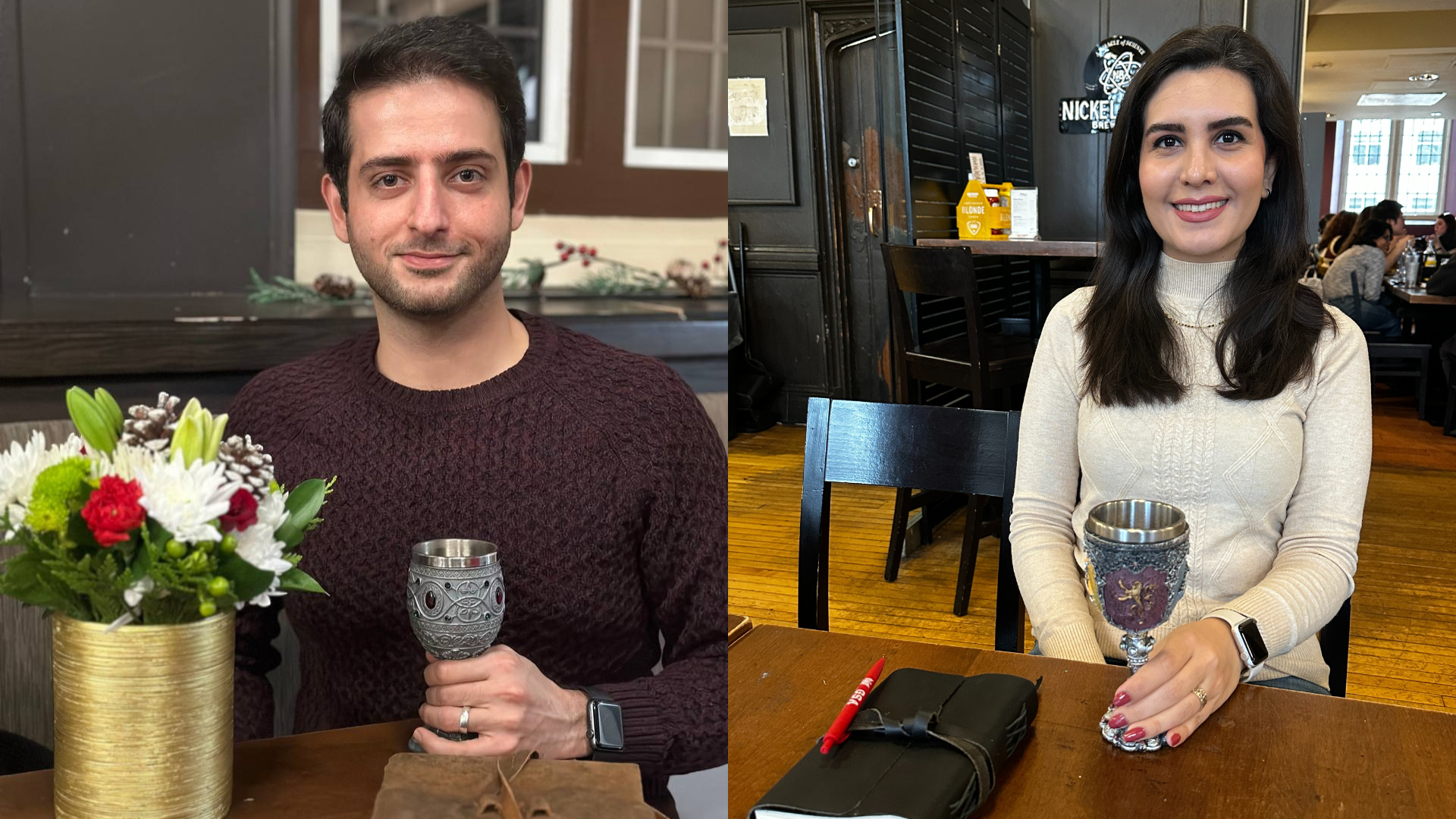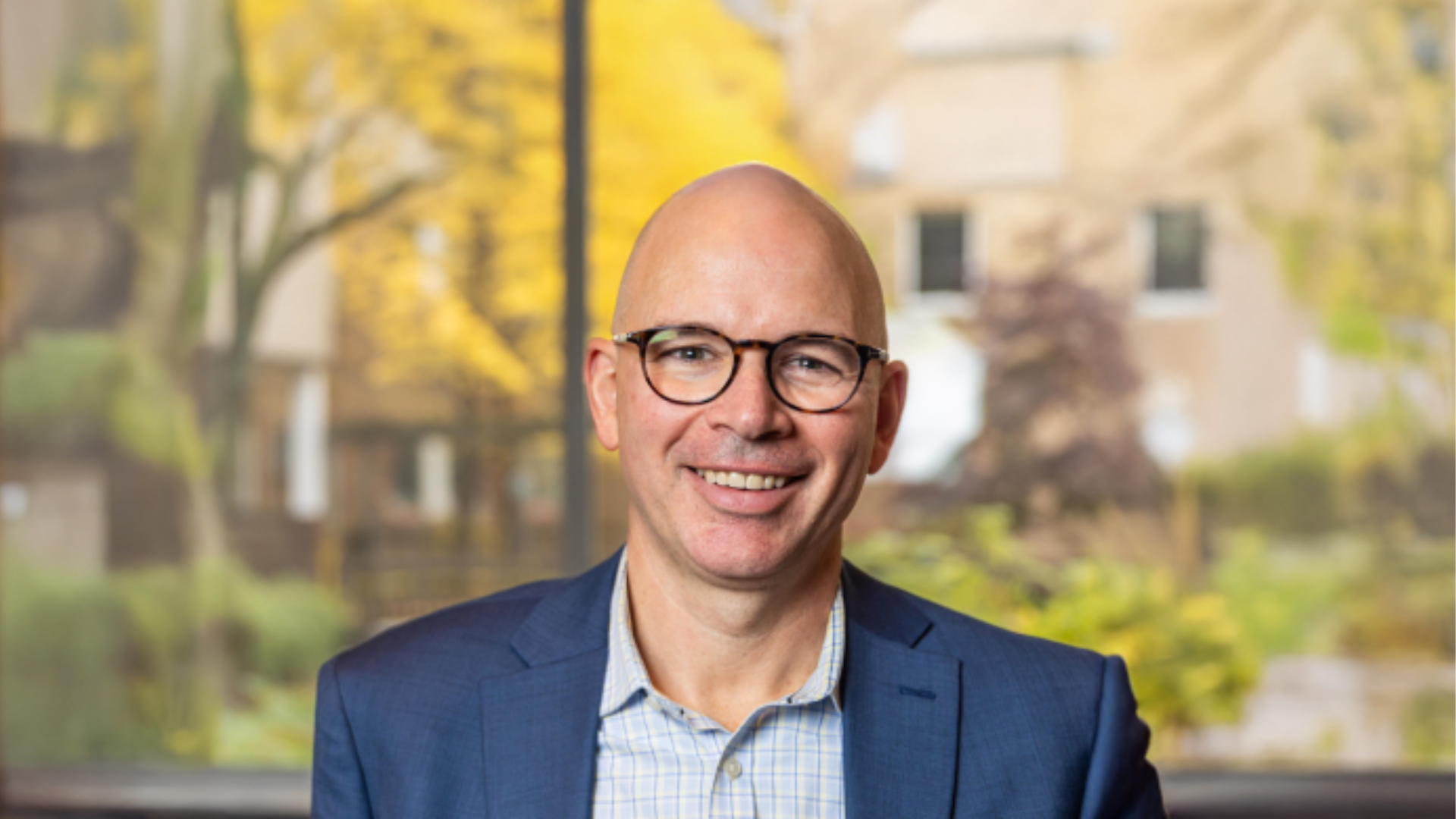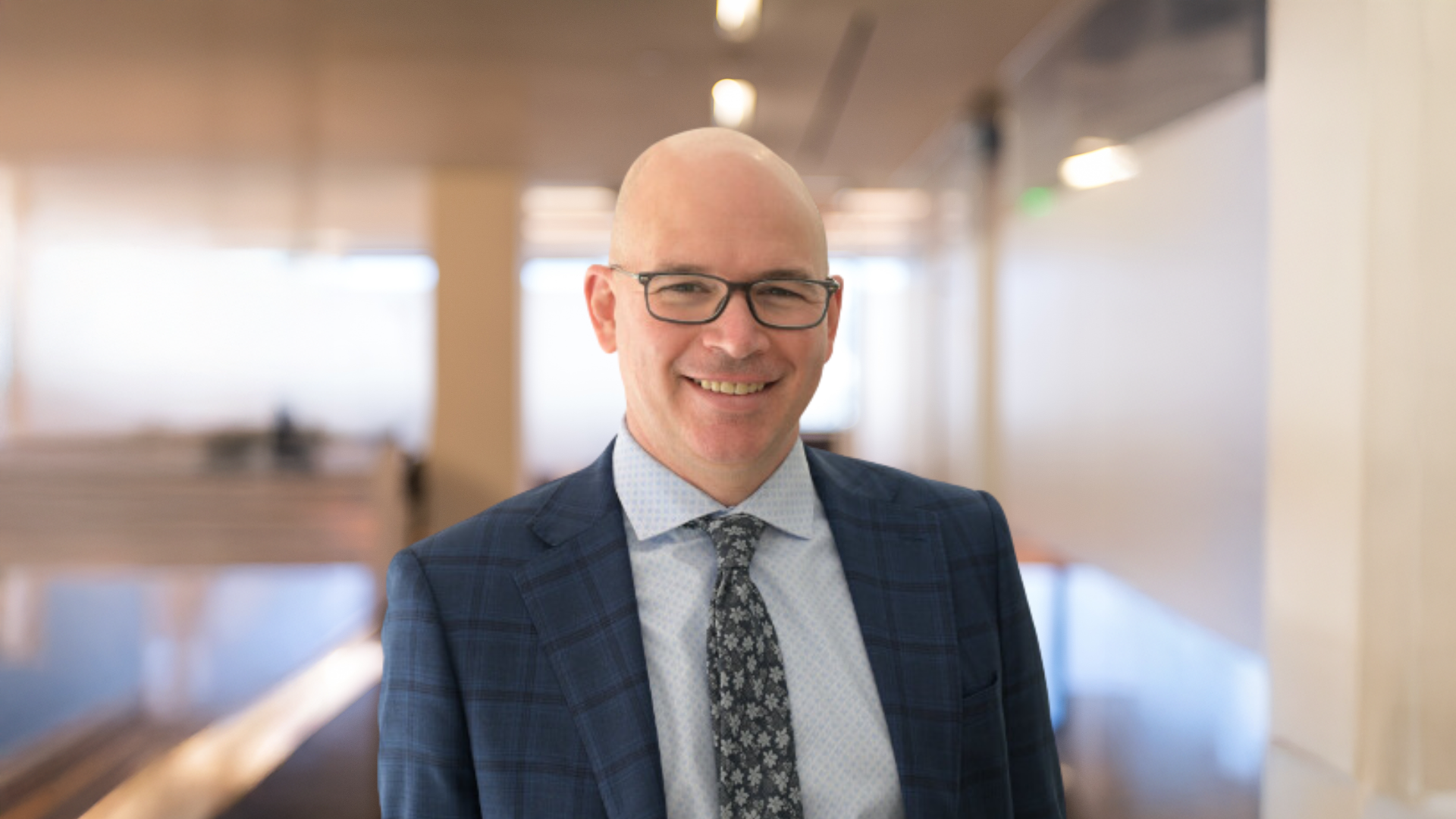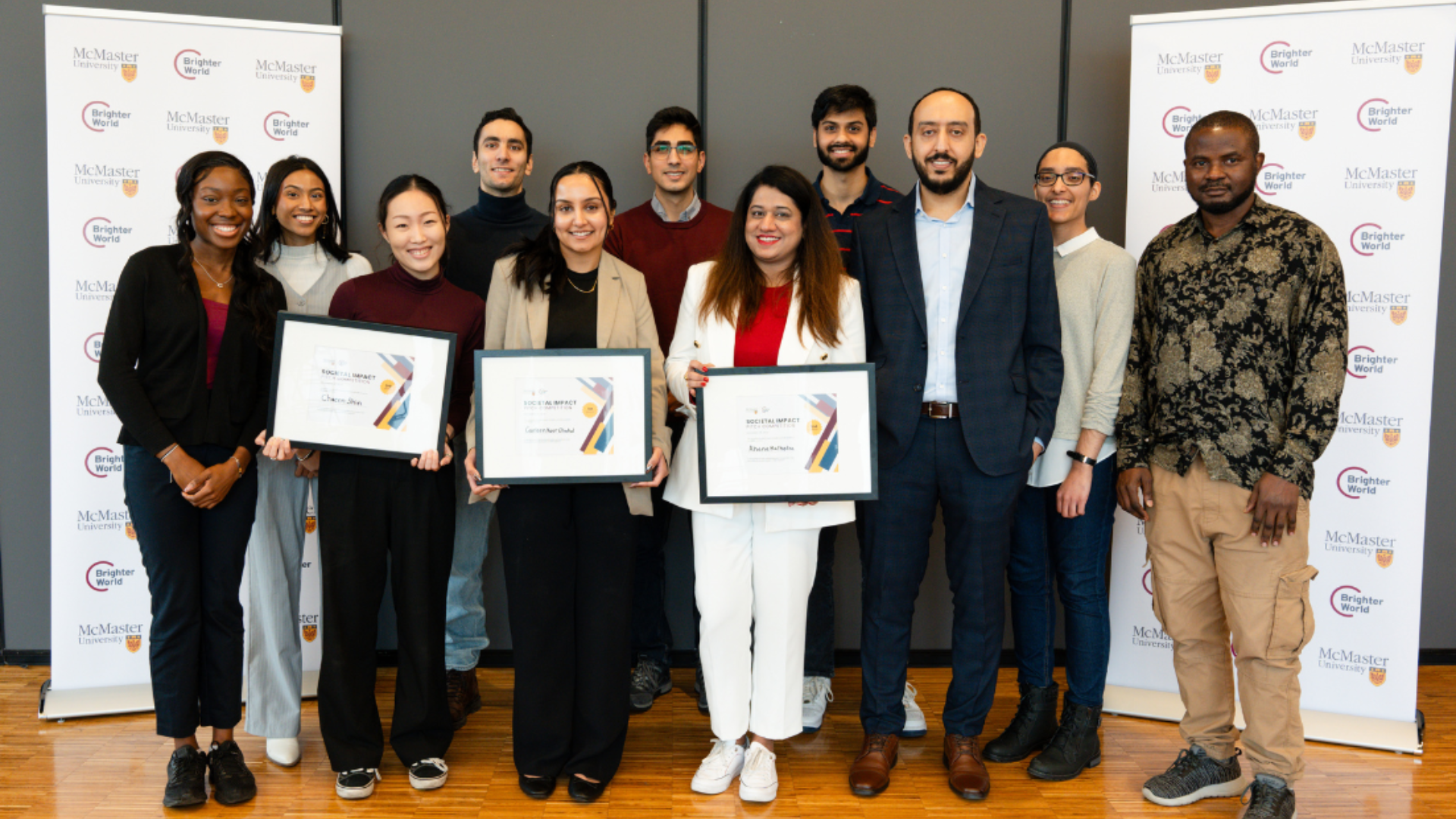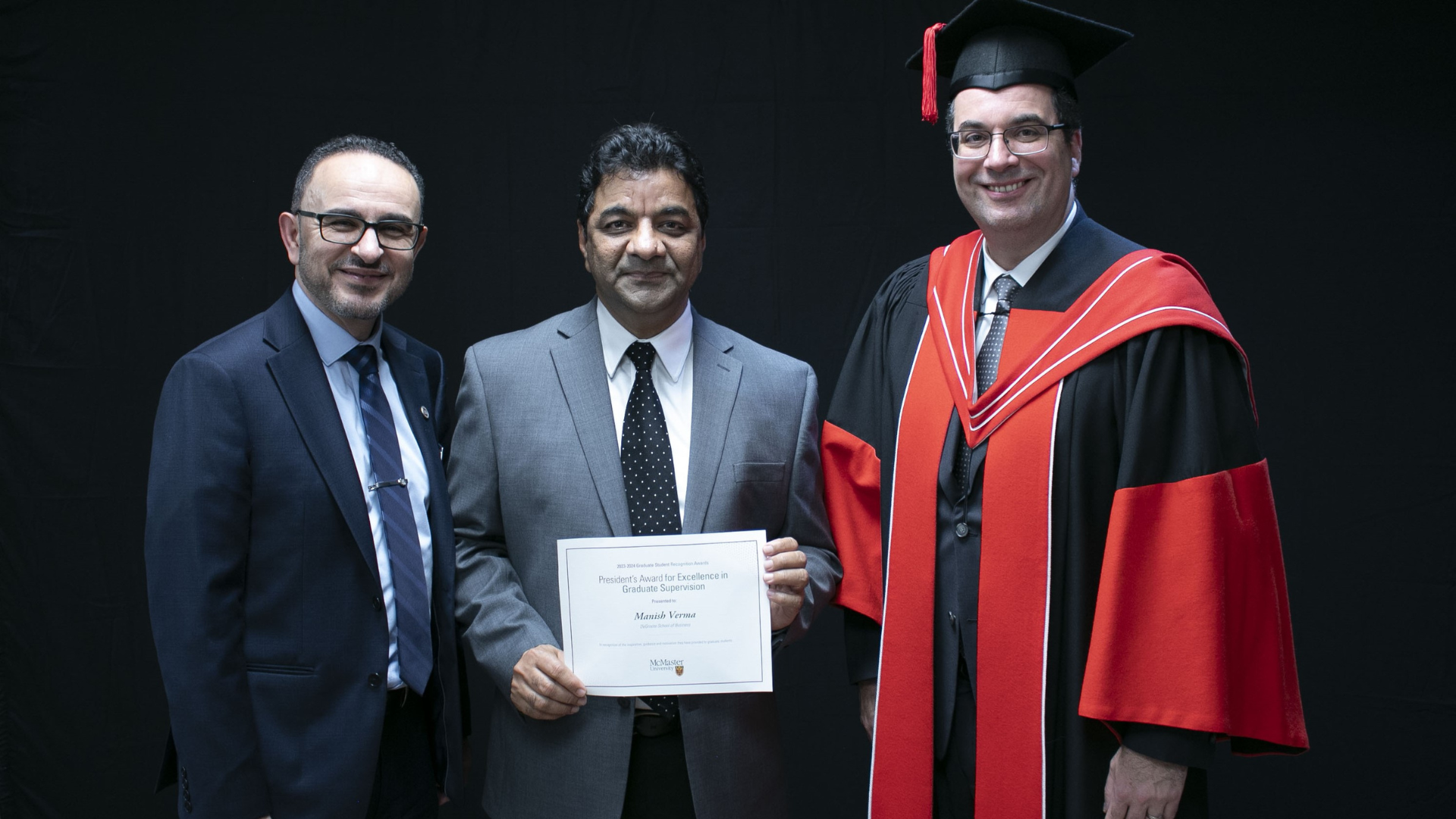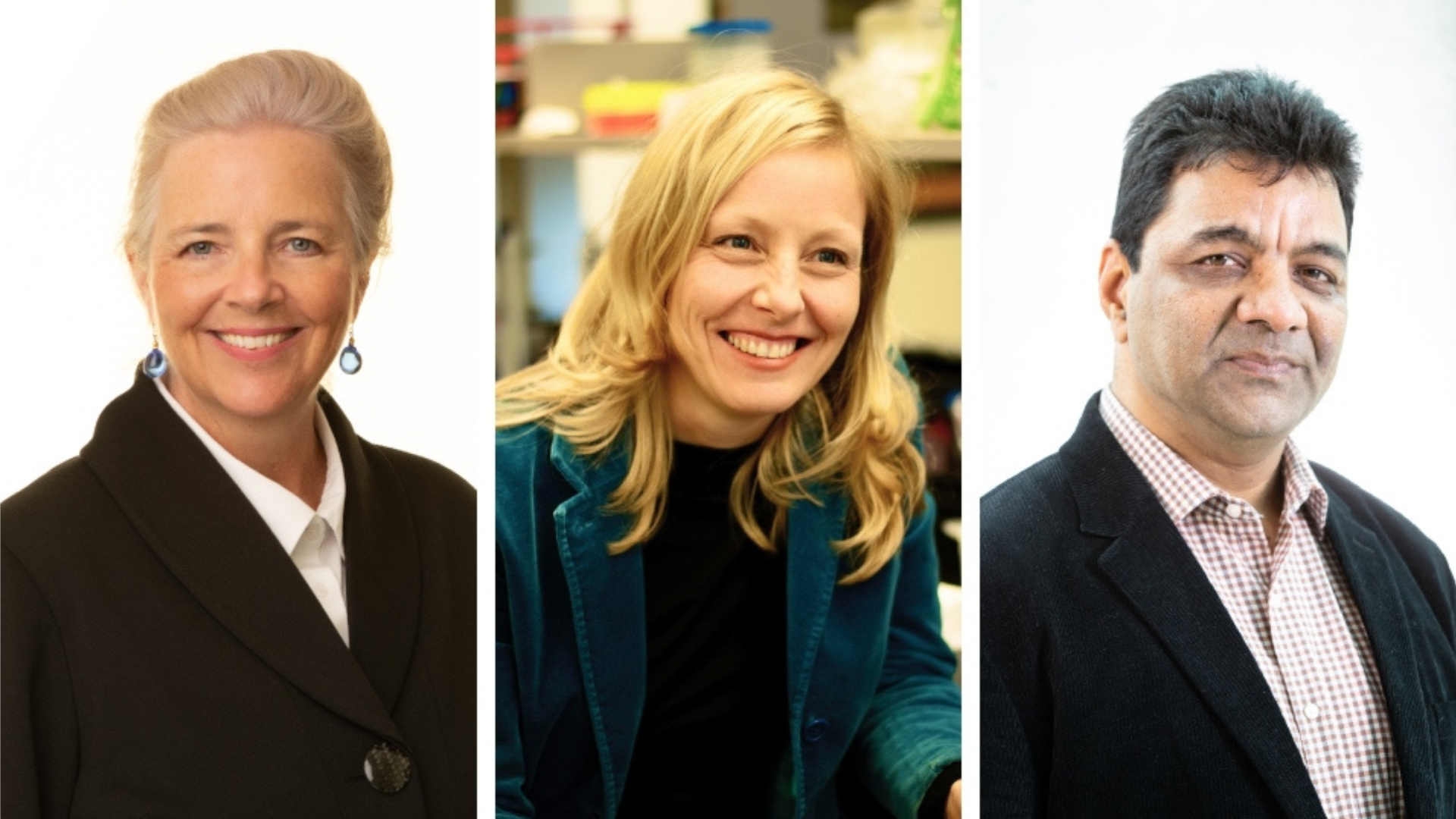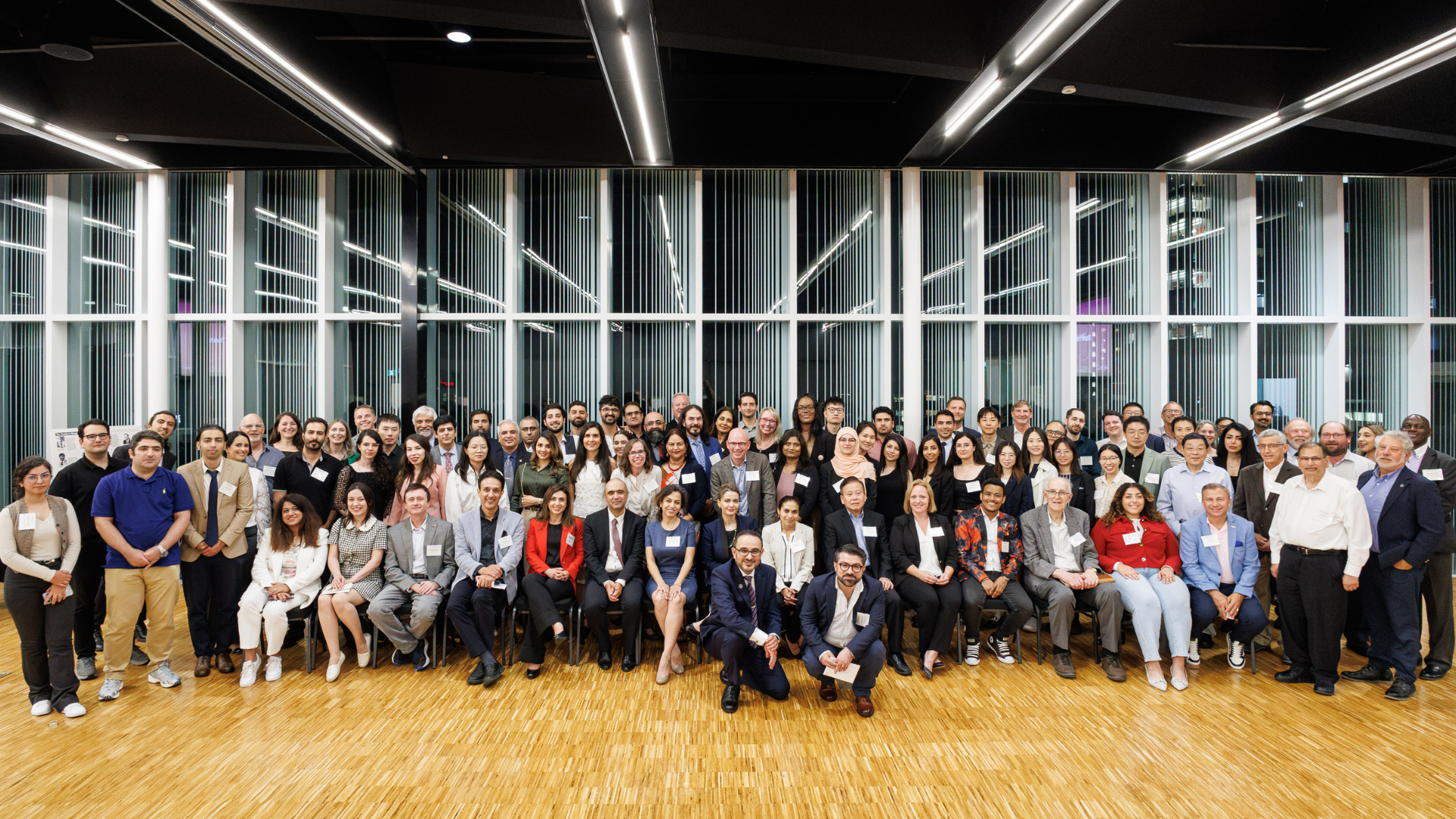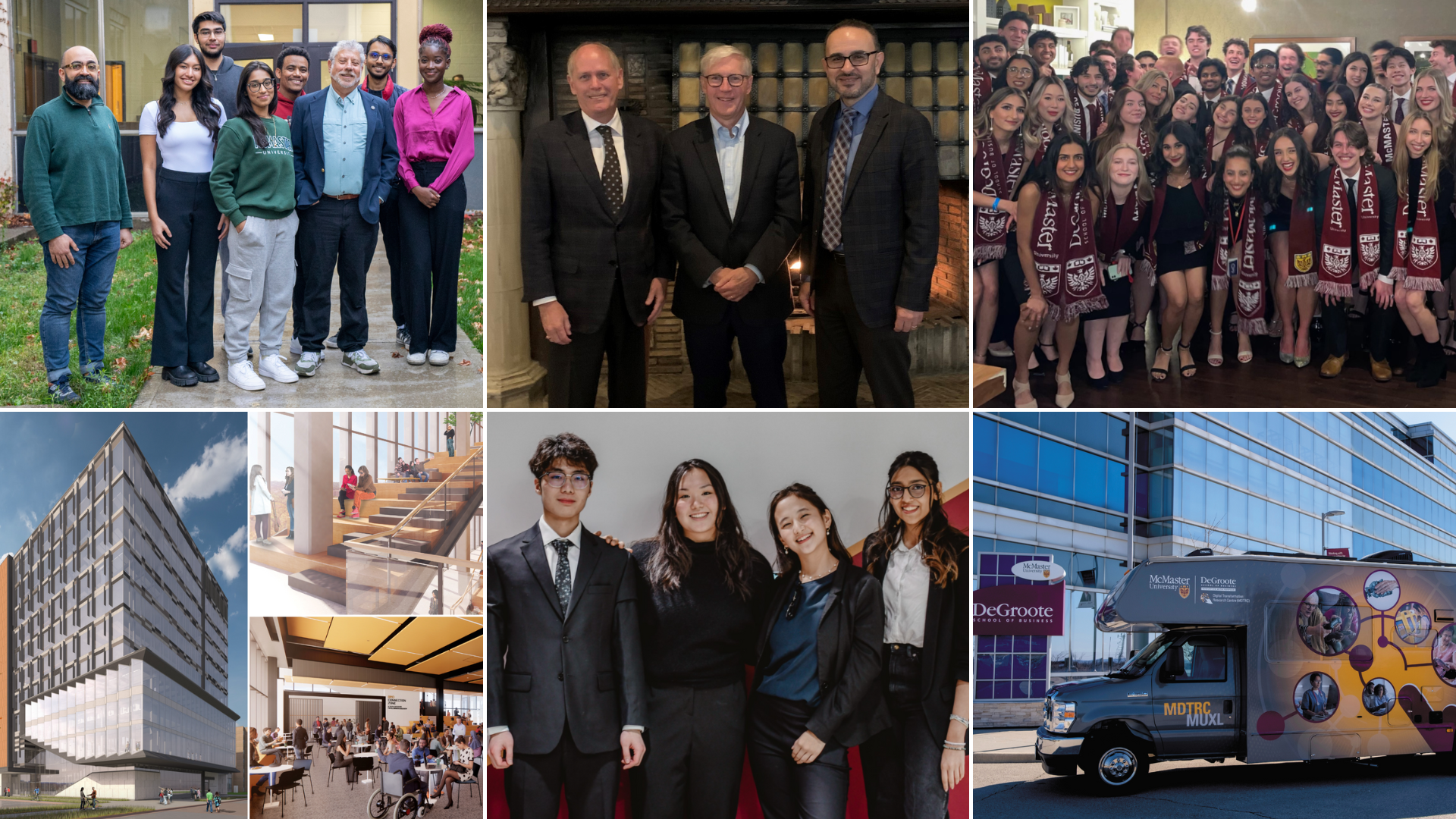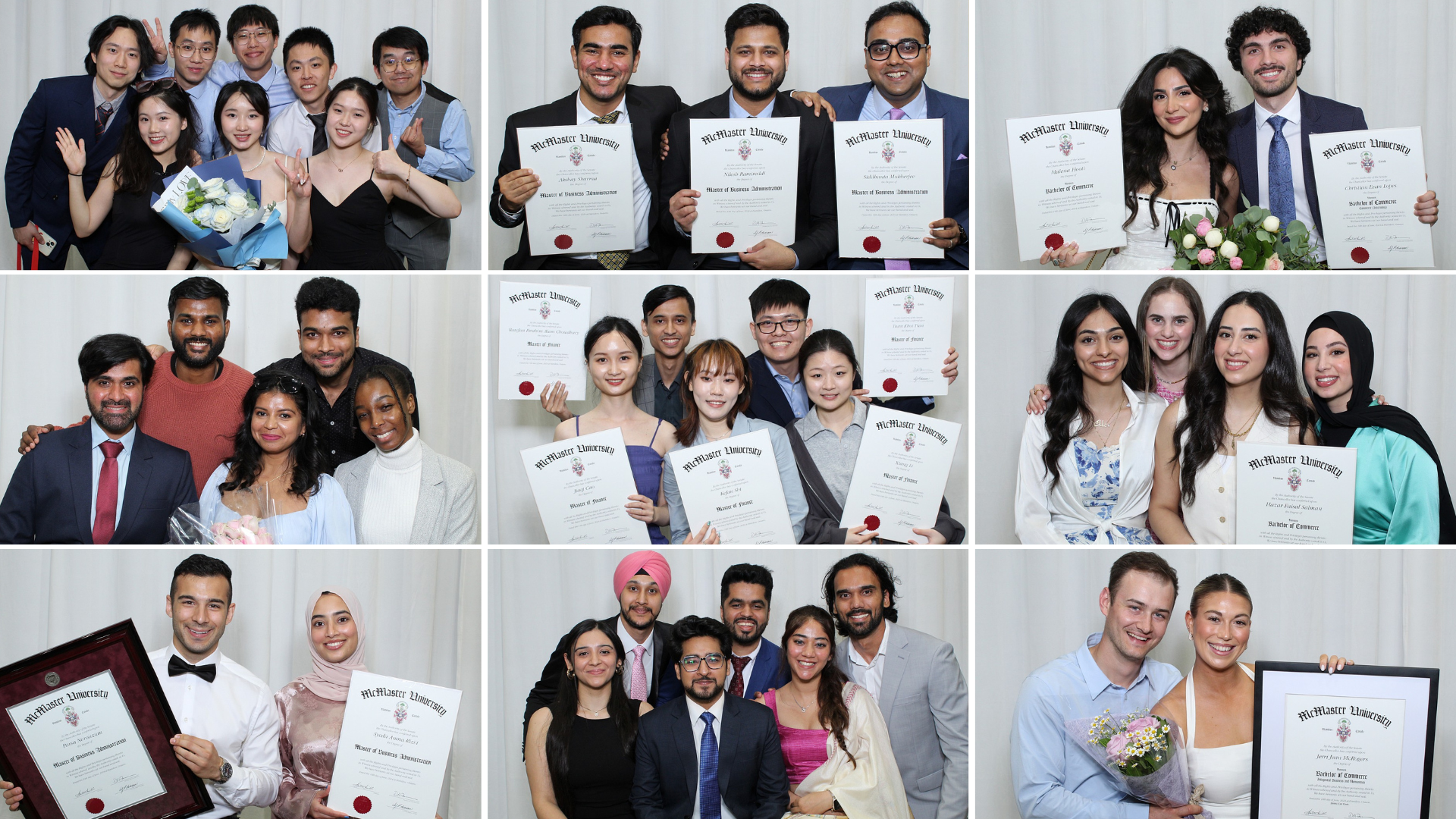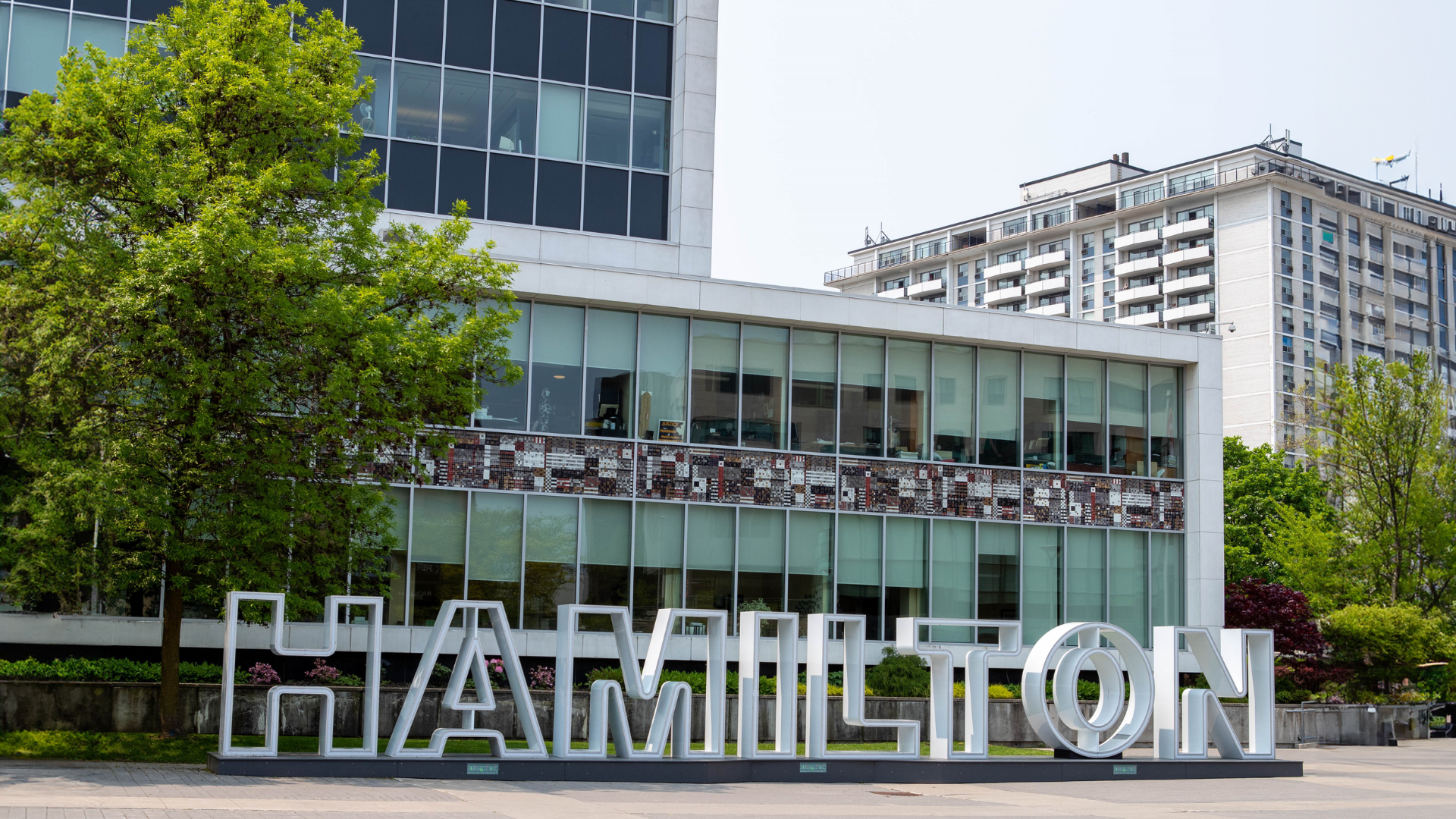Student perspective: Driving sustainability in freight transportation
December 11, 2024 ·
Contributed by: Zahra Mashayekhi, PhD candidate
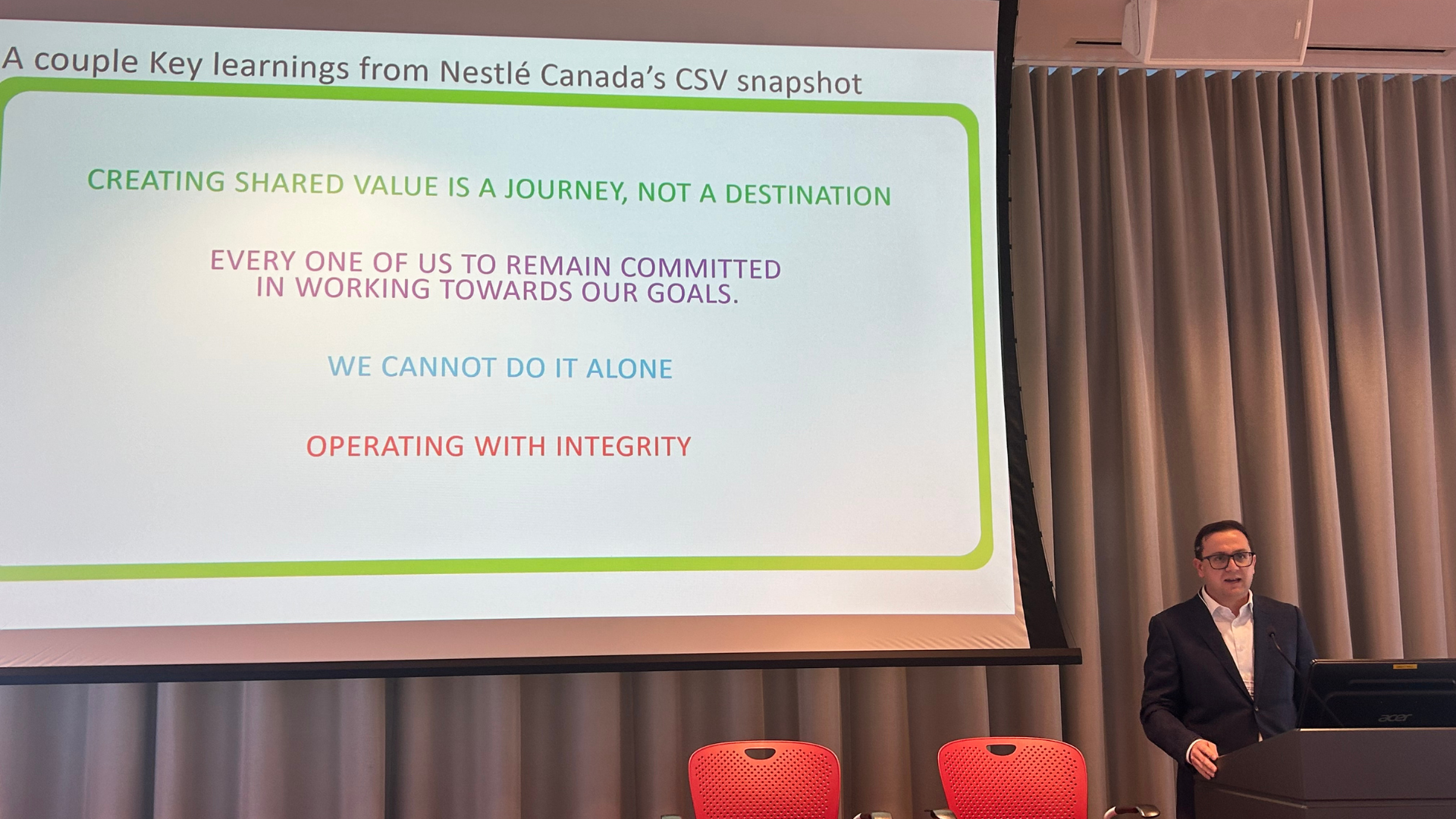
Matt Judd (BCom ’17), director of transportation and logistics business excellence at Nestlé Canada presents at the sixth Smart Freight Symposium.
The Smart Freight Centre held its sixth Smart Freight Symposium on November 18, 2024.
The annual Symposium brings together academics, government and industry leaders to explore the challenges and opportunities in sustainable freight systems. This year’s event focused on three areas: freight decarbonization, pathways to achieve net-zero in freight transportation and technological innovations transforming freight logistics.
DeGroote PhD Management Science student Zahra Mashayekhi’s research focuses on optimizing rail-truck intermodal transportation. She attended the Symposium and shares her insights and takeaways.
Attending the Smart Freight Symposium was a remarkable experience, offering a glimpse into innovative strategies shaping the future of sustainable transportation. There were engaging presentations from industry experts as well as academic scholars and PhD students. The presentation by Matt Judd, director of transportation and logistics business excellence at Nestlé Canada stood out as particularly insightful. Breaking away from a focus exclusively on electric vehicle adoption, Judd’s discussion broadened the scope to include strategic shifts and optimizations that can significantly impact sustainability.
Judd structured his talk around the three pillars of Nestlé’s approach to reducing emissions: Avoid, Shift and Improve. The simplicity and clarity of this framework resonated strongly with me, as it encapsulates both operational improvements and strategic transformations.
- Avoid: Judd emphasized the importance of reducing the need for truck usage by optimizing container and pallet utilization. Nestlé’s three-phase strategy—container, pallet and consumable unit utilization—demonstrates how small, incremental changes in packaging and logistics can dramatically enhance efficiency. These improvements minimize unnecessary trips and maximize payloads, reflecting a pragmatic and scalable approach to sustainability.
- Shift: A key highlight of the session was the discussion on shifting freight from trucks to rail and ships, modes that are significantly more environmentally friendly. Judd shared examples of long combination vehicles and direct rail lines connecting Mexico to Canada, showcasing how Nestlé is leveraging multimodal logistics to reduce its carbon footprint. This modal shift aligns perfectly with the broader goals of decarbonizing supply chains and optimizing logistics networks. As someone whose research focuses on optimizing rail-truck intermodal transportation, I found this aspect particularly relevant and insightful, as it directly ties to the challenges and opportunities I am exploring in my own work.
- Improve: Judd also discussed Nestlé’s commitment to adopting cleaner technologies, including the use of electric vehicles (EVs) and bio-LNG (liquefied natural gas) trucks. Piloting EVs in distribution centers and exploring bio-LNG solutions demonstrates how innovation can complement systemic shifts in transportation modes.

Finally, one of the most compelling aspects of Judd’s presentation was his emphasis on academic and industry partnerships. He highlighted collaborations with institutions like McMaster University and initiatives like the Smart Freight Centre. This focus on partnership underscores the importance of bridging academic research and industry practices to develop effective, real-world solutions. As a PhD student working in this field, I found this particularly inspiring, reinforcing the value of interdisciplinary collaboration in driving progress.
Overall, I enjoyed the active and lively atmosphere of the Smart Freight Symposium, which brought together researchers from academia and industry experts. The presentations from both sides were incredible, and it is absolutely one of the mediums that can strengthen the connection between academia and industry.
Learn more about the 2024 Smart Freight Symposium.
 Zahra Mashayekhi is a PhD candidate in Management Science at the DeGroote School of Business. She started this journey in September 2020 and has an academic background in industrial engineering. Her research interests encompass combinatorial optimization, stochastic programming, robust optimization and machine learning, with applications across diverse areas. Currently, her research focuses on optimizing intermodal rail-truck transportation and network design, considering random disruptions in the network. To manage the inevitable uncertainties in the real world, she utilizes stochastic programming and robust optimization techniques.
Zahra Mashayekhi is a PhD candidate in Management Science at the DeGroote School of Business. She started this journey in September 2020 and has an academic background in industrial engineering. Her research interests encompass combinatorial optimization, stochastic programming, robust optimization and machine learning, with applications across diverse areas. Currently, her research focuses on optimizing intermodal rail-truck transportation and network design, considering random disruptions in the network. To manage the inevitable uncertainties in the real world, she utilizes stochastic programming and robust optimization techniques.

